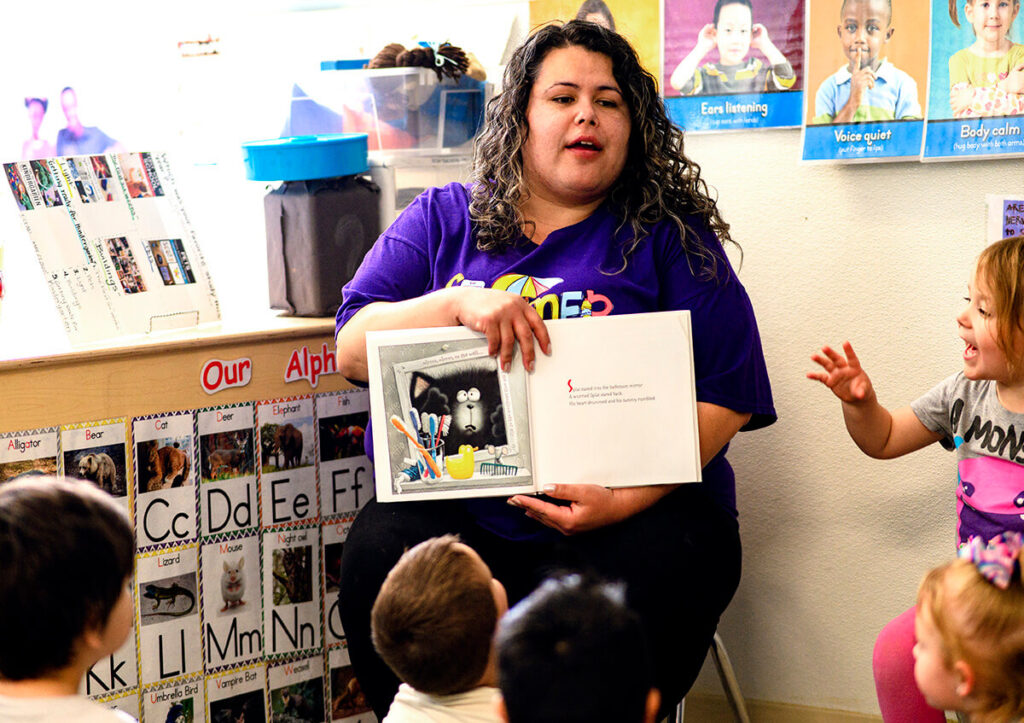
Employers
Strengthen your workforce today – and for tomorrow.
Why Child Care Matters
Child care matters to Washington employers because employers need reliable, productive employees – both now and in the future. High-quality child care provides both. When employees who are parents have access to high-quality child care, they can enter and remain in the workforce and arrive at work on time and ready to be productive, while their infants and young children receive the safe care and crucial early learning they need to be ready for school and beyond.
Washington’s Child Care Collaborative Task Force found that Washington businesses lose over $2 billion each year due to employees’ issues with child care. Read their report “The Mounting Costs of Child Care” here and see how that yearly $2 billion loss translates into an opportunity cost of $6.5 billion a year. Learn about our state’s child care crisis and what can be done to alleviate it here.
The U.S. Chamber of Commerce Foundation recently released a report that makes the business case for high-quality child care.
- There’s a growing gap between the skills of our current workforce and available jobs
- 60% of businesses have jobs they struggle to fill
- Employees who are parents make career decisions based on available child care options
- High-quality child care is early education. Early learning begins at birth.
“America today is a nation of people without jobs and jobs without people,” Thomas J. Donohue, president and CEO of the U.S. Chamber of Commerce

“Today’s workers need childcare. Tomorrow’s workers are in childcare.”
– Katharine B. Stevens
- 60% of Washington children live in homes where all adults work
- 75% of working moms lost job opportunities because of child care
- 74% of employees say child care problems impact work


American Enterprise Institute, Workforce of Today, Workforce of Tomorrow: The Business Case for High-Quality Childcare, U.S. Chamber of Commerce Foundation, June 2017
What Can Employers Do?
There are steps employers can take both inside and outside the workplace.
In your organization:
- Survey your employees about their child care needs and offer flexibility where needed through supportive policies.
- Child care is expensive, often costing more than college tuition. Offer employees flexible spending accounts to pay for child care with pre-tax dollars, or look at the possibility of providing direct assistance with child care costs.
- Share Child Care Aware of Washington’s free child care referral service information with employees – 1.800.446.1114 or ChildCareAwareWA.org
In your community:
- Donate supplies, used equipment, furniture and computers to local child care providers to help improve their programs. Call ahead first to make sure items are needed.
- Tell your elected representatives how child care access impacts your business.
- Share what you are doing to increase access to high-quality child care at community meetings and through your company newsletter and social media.
How to Increase Access – En Español
Your Voice Counts
For business, high-quality child care means a stronger workforce today and in the future. Learn more about child care in Washington and what you can do to make a difference.
